PM Narendra Modi’s all-party meeting Wednesday to build consensus on holding assembly and Lok Sabha polls simultaneously is being seen as a ‘trap’ by the opposition. Mamata Banerjee, KCR, Chandrababu Naidu, Mayawati, M.K. Stalin, Sharad Pawar and Arvind Kejriwal will skip Modi’s meeting to push the ‘one nation, one election’ agenda. The EC just concluded a staggering 7-phase Lok Sabha and four state elections spread over six weeks, citing security reasons.
ThePrint asks: Are simultaneous elections possible when EC can’t even conduct Lok Sabha polls in one day?
We held simultaneous polls in Odisha & Andhra, can certainly replicate it across India
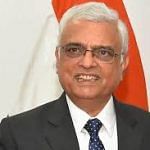 O.P. Rawat
O.P. Rawat
Former Chief Election Commissioner
Conducting simultaneous polls is definitely a practical idea. After all, we did have simultaneous elections in 1952, 1957, 1962 and 1967. They fell out of sync later and we started having separate state and Lok Sabha elections.
That the Lok Sabha elections were conducted in seven phases this time around is immaterial to this debate, because whatever number of phases Lok Sabha elections are conducted in, simultaneous polls will ensure state elections in those number of phases. We will just require one more table, one more voting machine, and one more VVPAT machine in each polling booth. The number of security personnel will also remain the same.
If we were able to have simultaneous polls in Odisha and Andhra Pradesh, then we can certainly replicate the process in the other states.
My sense is that the public is largely in favour of simultaneous polls because it will mean less hassle of conducting an election every few months.
Police personnel and central paramilitary forces will also not be hassled because they have to travel the length and breadth of the country every time they are deployed for elections. But as far as the argument that simultaneous polls will save expenditure is something only empirical studies can conclusively prove.
Also read: Modi’s simultaneous polls plan is like changing river course to control traffic on bridge
Those who say simultaneous polls will undermine federal structure are insulting intelligence of voters
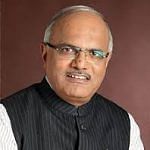 Vinay Sahasrabuddhe
Vinay Sahasrabuddhe
Leader, BJP
Simultaneous polls are definitely not an impossible idea to achieve. After all, Andhra Pradesh, Odisha, Arunachal Pradesh and Sikkim did have simultaneous state and Lok Sabha elections this year. So, it would be highly ignorant of anyone to simply dismiss the possibility.
The opposition clearly is approaching this with a narrow mind. If they were more open-minded about it, they’d at least be willing to reach a compromise of some sort. If not one, then may be the polls can be conducted in two phases – half the states can hold elections in one go, and the other half can have their elections along with the Lok Sabha elections. This way, we will have only two elections and not 15-16 elections like we are used to.
Simultaneous polls are in the interest of the country. It will save time, money and human resources that are wasted every time we go for polls. Governance also takes a backseat because our entire energy is invested in conducting elections time and again.
Those who argue that simultaneous elections will undermine the federal structure of the country are actually insulting the intelligence of voters. Do they really think people will vote for the same party in both state and Lok Sabha polls just because they are happening simultaneously? Voters have been known to have different voting patterns in state and national election – so this is a bogus narrative.
If Modi manages to pull it off, simultaneous polls will be one of the most important reforms by NDA
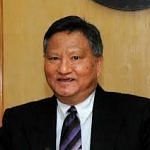 H.S. Brahma
H.S. Brahma
Former Chief Election Commissioner
Only a minor change in certain constitutional provisions will be required for India to introduce simultaneous polls, which will ensure a much smoother and easier election process. The load on the Election Commission will not increase; on the contrary it will decrease. The number of security personnel will also remain more or less the same — more security force will need to be deployed only in states like West Bengal and certain northeast regions. But that won’t be a problem because other regions like Delhi won’t need a lot of security personnel.
Not only are simultaneous polls practical, they are also desirable. If the government manages to pull it off, this will be one of the most important reforms undertaken by the NDA and will make for an incredible achievement.
Repeated elections mean recurring disruptions in the society, politics and the country’s economic growth. Simultaneous polls will also help save money and resources, and ensure more discipline in governance. The politics that accompanies elections is largely counterproductive and doesn’t contribute to governance. So simultaneous polls will not only ensure a disruption-free social life but also a more effective governance.
Also read: Is it justified for India to have Lok Sabha elections in 7 phases over 6 weeks in 2019?
Security risks change depending on whether polls are state or national, that must be kept in mind
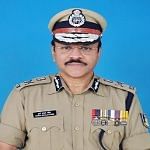 Durga Prasad
Durga Prasad
Former DG, CRPF
For security personnel, the major advantage of simultaneous polls is that they will get done with the strenuous election security work in one go. However, the major difference in state and central elections is the intensity of tensions. The more localised an election, the higher the likelihood of tensions erupting. So, a panchayat election will be a more emotional matter for people of a region, and state elections will be slightly less emotional, and central elections will mean the involvement of least amount of emotions because it is a relatively far removed event.
The more far removed an election is from the day-to-day lives of citizens, the less likelihood of tensions erupting. So that is something that will need to be kept in mind while making decisions about simultaneous polls.
Besides that, I don’t think there should be much of a problem from a security perspective. It is true that there is often disparity in deployment of security personnel depending on the conditions prevailing in a state. So certain pockets may require more security personnel than others. But states like Kashmir or West Bengal will be given more security deployment regardless of whether it is a state election or Lok Sabha election.
The logistical nightmare involved in holding elections will only get doubled with simultaneous polls
 Shivam Vij
Shivam Vij
Contributing editor, ThePrint
Proponents of ‘one nation, one election’ suggest that it’s all about putting another EVM in the polling booth. But it takes a lot more than that to organise an election. It is an exercise that takes several weeks, paralysing district administrations. Holding state and central elections will need more election observers, more security, more hands and eyes and ears on the ground. The logistical nightmare will only get doubled.
The Election Commission needs four phases to organise a simultaneous election in a peaceful state like Odisha… or was the decision political rather than logistical? The Election Commission for some bizarre reason is unable to hold elections for two Rajya Sabha seats in Gujarat and we think it could conduct simultaneous elections for the Lok Sabha and all of the country’s states together. Ditto in Jammu and Kashmir, where the EC said the security situation allowed putting one EVM in the polling booth and not two, thus extending the central government’s rule in the state through a hyper-active governor.
The moral of the story is that we should not treat “one nation, one election” as a logistical issue. Perhaps the EC will take five rather than two-and-a-half months to finish the exercise. The larger issue is one of principle. “One nation, one election” will be the murder of federalism and cannot be allowed to become a reality.
Simultaneous polls are bound to give national parties an advantage at the cost of regional players
 Sanya Dhingra
Sanya Dhingra
Principal correspondent, ThePrint
The Modi government’s push for a debate on simultaneous polls, although welcome, seems a little curious given that the Election Commission was unable to hold assembly elections in Jammu and Kashmir alongside the Lok Sabha polls in May on account of insufficient security forces, among other factors.
The 2019 general elections took place in seven long phases – a period during which all government and development activity came to a standstill. The EC cited shortage of security troops as a reason for its inability to conduct elections in less time. The question is: if there aren’t enough troops to finish Lok Sabha elections in a phase or two, how will the EC arrange enough troops to hold simultaneously elections throughout the country?
While there may be some merits to the idea of simultaneous polls – as noted by the NITI Aayog, Law Commission and Election Commission among others — their ability to tinker with the federal nature of Indian democracy, and make it more presidential in style, cannot be ruled out. This is bound to advantage the national parties at the cost of regional players.
India needs electoral reforms urgently – ensure candidates’ expenditure is within permissible limits, there are limits on expenditure by political parties, the Model Code of Conduct has legal backing, the elections do not go on for weeks, the EC enjoys more autonomy, and that donors contributing to political parties through electoral bonds are not allowed to remain anonymous are some of the most pressing ones. If the intention behind ‘one nation, one election’ is to reboot the Indian democracy, there are other ways to do it – which would not require casually tampering with the Indian constitution.
By Fatima Khan, journalist at ThePrint.


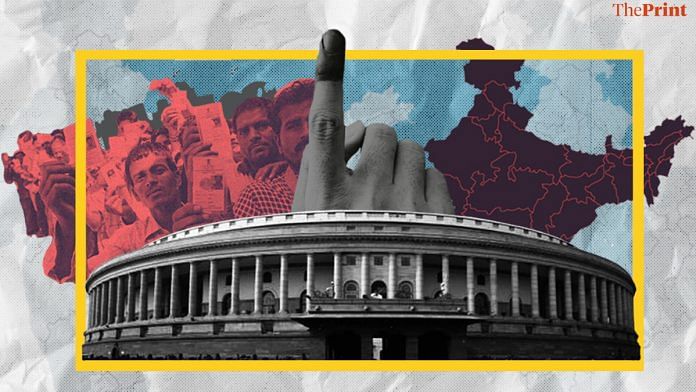

Media voices will find umpteen reasons and try to justify why it’s a bad idea. Reality is that with simultaneous polls, easy ad revenue for media will reduce drastically – something which as of now is spread almost throughout a year – year after year. That’s what scares folks in media – hence all of them trying to find reasons and justifying why it’s a bad idea – and obviously in a vast polarizing country as ours – there will be takers to these cooked up rationale.
From the debate above, there is a clear difference of opinions between practitioners and commentators. The professionals wants one nation, one poll while the commentators who ply their trade by writing/ making analysis, want status quo, as they fear for their jobs. I am sure that the voting public would wholeheartedly support this idea.
After watching a very lucid exposition in Government Matters. 2. In the United States, each of fifty states, widely dissimilar in size and population, has two seats on the Senate. One third fall vacant every two years, giving each Senator a six year term. The Senate’s composition changes gradually, reflecting the nation’s political mood. Unlike the House of Representatives, whose 435 members are elected every two years. This maintains a federal balance, which is protected more zealously than in India, where earlier the Congress, now the BJP, represent a sweeping political force. 3. One cannot blame the regional parties for their apprehensions. They are like holding ponds that absorb excess water when there is a national flood surge. Plot the social and economic progress of India since Independence, study how closely – or otherwise – periods of overwhelming political dominion are congruent with national achievement. 3. The most hare brained suggestion is that if the Union Government falls after two and a half – for that matter, even four – years, the next Lok Sabha election will be to select a government that will serve for two and a half – or just one – year. The women and men who drafted the Indian Constitution represented a galaxy of greatness that has not been replicated. They borrowed the best from the constitutions of other successful democracies. Let the fruit of their toil endure as long as the Republic.
Yes, “one nation, one election” will be the murder of federalism and will not be allowed to become a reality. It will be the end of federalism and the break-up of India. This project is the idea of bureaucrats who have misunderstood the constitutional law course on the forms of the STATE, and are disconnected from history and contemporary realities and those to come! These sorceres apprentice should re – read the speech of B.R. Ambedkar addressed India ‘s Constituent Assembly for the last time, pronounced on November 25, 1949, And you should put this speech online to enlighten your readers
We are still reordering the internal layout and configuration of the kitchen, the pots and pans. A billion hungry Indians outside are waiting to be served Meals Ready to Eat.